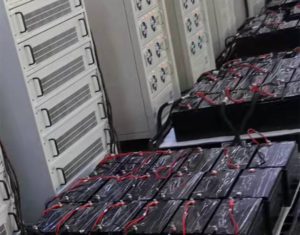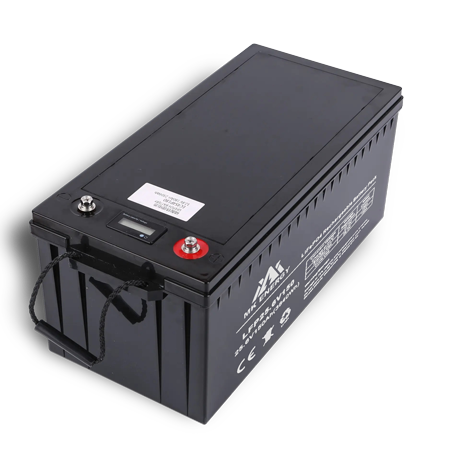LiFePO4 Lead Acid Case Battery vs. Traditional Lead Acid Battery
In recent years, many energy storage battery solutions have emerged. There has also been a clear shift in our energy storage landscape. The most breakthrough innovation in the battery field is the LiFePO4 lead-acid battery, and with the invention, the LiFePO4 Lead Acid Case Battery was derived. This article will introduce the difference between LiFePO4 lead-acid case batteries and traditional lead-acid batteries.
LiFePO4 lead acid case battery chemistry Properties
LiFePO4 chemistry is a lithium-ion battery known for its stability. It uses a cathode made of lithium iron phosphate, which improves overall safety compared to other lithium-ion counterparts. This composition minimizes the risk of thermal runaway and ensures a more robust and durable battery. The lead-acid casing provides additional protection and structural support to the LiFePO4 battery. Lead acid is a proven and reliable material that resists corrosion and provides a robust outer shell for internal components. This dual-layer design helps improve the overall safety and longevity of the battery.

Learn the basics of traditional lead-acid batteries!
Traditional lead-acid batteries have been a staple of the energy storage industry for decades, providing the foundational technology for various applications. Lead-acid batteries work on the principle of reversible electrochemical reactions during charge and discharge cycles. During discharge, the lead dioxide on the positive plate reacts with sulfuric acid to form lead sulfate and release electrons. At the same time, on the negative scale, the lead sponge reacts with sulfuric acid to produce lead sulfate and water. This process generates electrical energy for external use. Despite their relatively low energy density compared to new technologies, lead-acid batteries remain popular due to their affordability, reliability, and widespread availability.
Advantages of LiFePO4 lead-acid case batteries
LiFePO4 lead acid case batteries offer several benefits, combining lithium iron phosphate’s chemical stability with a lead-acid case’s protective properties. LiFePO4 chemistry is inherently stable, reducing the risk of thermal runaway or fire incidents typically associated with other lithium-ion chemistries. Lead-acid casing provides an extra layer of security, providing strong protection and containment. The dual-layer design with LiFePO4 chemistry and lead-acid case helps improve the overall durability of the battery.
While traditional lead-acid batteries typically require maintenance to replenish moisture loss, lithium iron phosphate batteries with lead-acid casing are designed to be maintenance-free. This reduces the need for regular inspections and interventions, bringing convenience to users. LiFePO4 batteries with lead-acid case can be used in everything from automotive use to renewable energy storage.
Challenges and limitations of traditional lead-acid batteries
Lead-acid batteries have relatively low energy density compared to new technologies, meaning they store less energy per unit of weight. This limitation affects their suitability for applications requiring compact and lightweight power supplies. Lead-acid batteries have a limited number of charge and discharge cycles before their capacity drops significantly. This cycle life limitation makes them less suitable for long-term and high-cycle applications such as renewable energy storage systems. Lead-acid batteries contain lead, a toxic heavy metal that can cause environmental problems during production, use, and disposal. Strict regulations regarding lead handling and recycling add to the challenges associated with these batteries. They are relatively heavy and bulky, making them less suitable for applications where weight and space are critical factors.
LiFePO4 Lead Acid Case Battery cross-industry applications
They take advantage of the chemical stability of lithium iron phosphate and the protective properties of lead-acid containers and are widely used in various industries. LiFePO4 batteries are increasingly used in EV and hybrid vehicles due to their safety, high charge and discharge efficiency, and long cycle life. The lead-acid housing provides additional protection, making it suitable for safety-critical automotive applications. These batteries provide reliable energy storage solutions for renewable energy systems. Their ability to provide stable power, high charge, discharge efficiency, and durability make them ideal for storing energy generated by intermittent renewable energy sources. LiFePO4 batteries with lead-acid casing are used in backup power systems for telecommunications infrastructure.

At last
By comparing the two, we know that the LiFePO4 Lead Acid Case Battery can completely replace the traditional lead-acid battery. Their advanced chemical composition and unparalleled advantages make LiFePO4 Lead Acid Case Battery the best choice for the renewable energy sector and UPS, telecommunications, etc.

